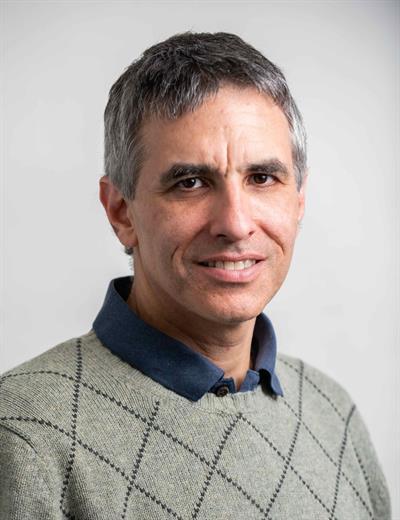
Marc Hodes
(617) 627-2488
574 Boston Ave, Room 318H

Research/Areas of Interest
heat transfer, apparent slip, thermal management of electronics, mass transfer in supercritical fluids and thermoelectricity, material science
Education
- Ph.D., Massachusetts Institute of Technology, United States, 1998
- M.S., University of Minnesota, United States, 1994
- B.S. with high honors, University of Pittsburgh, United States, 1990
Biography
Marc Hodes earned his B.S., M.S., and Ph.D. in mechanical engineering from, respectively, the University of Pittsburgh, the University of Minnesota, and MIT. He spent 10 years at Bell Labs Research and has spent extended periods at the National Institute of Standards and Technologies (NIST), the University of Limerick, and Imperial College London. He joined the Department of Mechanical Engineering at Tufts University in 2008.
Marc Hodes' research interests are in transport phenomena and, over the course of his career, four thematic areas have been addressed: 1) the thermal management of electronics, 2) mass transfer in supercritical fluids, 3) analysis of thermoelectric modules, and 4) analysis of convection in the presence of apparent slip. His current research lies in three areas. First, analytical solutions for Poiseuille and Nusselt numbers for liquid flows over diabatic structured surfaces that capture the effects of curvature, thermocapillary stress, and/or evaporation and condensation as menisci are being developed. Secondly, a series of experiments to measure densities, molecular and Soret diffusion coefficients, and mass transfer rates in alcohol-carbon dioxide solutions at supercritical conditions relevant to the drying of aerogels are being conducted. Thirdly, enhanced air-cooled heat sinks are being developed by deriving semi-analytical optimization formula for longitudinal-fin geometry heat sinks that capture the effects of non-uniform heat transfer coefficients.
Marc Hodes' research interests are in transport phenomena and, over the course of his career, four thematic areas have been addressed: 1) the thermal management of electronics, 2) mass transfer in supercritical fluids, 3) analysis of thermoelectric modules, and 4) analysis of convection in the presence of apparent slip. His current research lies in three areas. First, analytical solutions for Poiseuille and Nusselt numbers for liquid flows over diabatic structured surfaces that capture the effects of curvature, thermocapillary stress, and/or evaporation and condensation as menisci are being developed. Secondly, a series of experiments to measure densities, molecular and Soret diffusion coefficients, and mass transfer rates in alcohol-carbon dioxide solutions at supercritical conditions relevant to the drying of aerogels are being conducted. Thirdly, enhanced air-cooled heat sinks are being developed by deriving semi-analytical optimization formula for longitudinal-fin geometry heat sinks that capture the effects of non-uniform heat transfer coefficients.